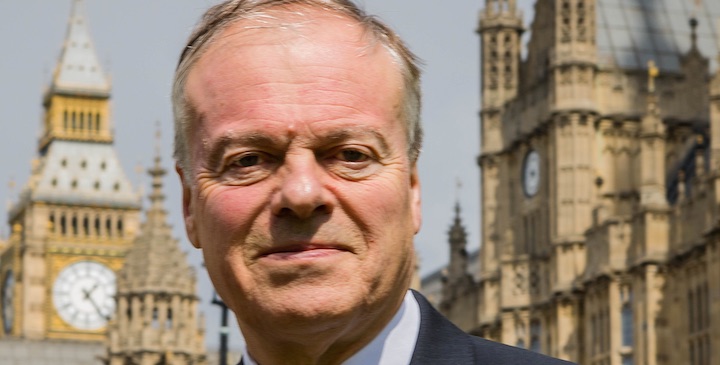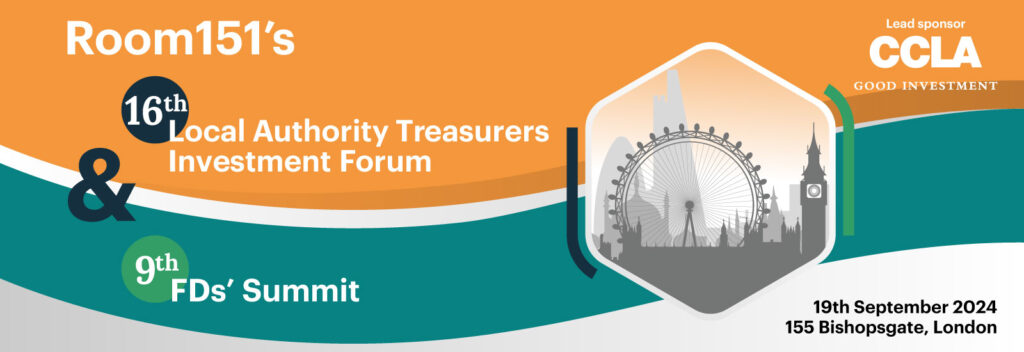For this edition of the Municipal Missions Manifesto, Clive Betts, in his role as the chair of the cross-party Levelling Up, Housing and Communities (LUHC) committee, reflects on what councils need from the next government.

This interview was conducted before the announcement of the UK general election on 4 July.
As councils start to look ahead to setting next year’s budgets, the financial outlook for the sector looks more challenging than in previous years. 2025 will mark 15 years since austerity started, whilst demand for council services has increased at unprecedented levels.
So, with the upcoming general election, Clive Betts, the chair of the LUHC committee, stresses that the next government must focus on two main things for councils: recognition that councils are not properly funded, and devolution.
“There has to be some recognition of the damage to local democracy that has been caused by severe reductions of funding and the increased demand for social care in particular, which has caused a reduction in council services. So, recognition that non-essential services have to be properly funded.
“Secondly, there has to be a transfer of more power down to a local level. Money is likely to be better spent if you leave it to local councils to decide how to spend it, rather than dictate from the centre,” he states.
Reflecting on this year’s local government finance settlement, with 19 authorities receiving Exceptional Financial Support, Betts highlights that this is “no free gift; it’s all short term and kicking the can down the road for somebody else to sort out”.
He adds: “It rolls into a future where there’s even less money to spend. This will result in stopping non-essential services, but non-essential services very often are the things that most people want.”
Reform of financing
Betts, who is also a Labour party politician and was most recently the MP for Sheffield South East, points out that the local government sector needs long-term funding, with the current sources of finance, including business rates, council tax and the revenue support grant currently “not fit for purpose”.
“We need to develop a better, more robust way of raising money from households and businesses. Land value tax is one alternative. Denmark has done it and Australia has done it; is it worth looking at?
“The other alternative is to reform what’s there, but can you make council tax in its current form fair? You probably can, but it’s a lot of effort to change council tax, and is it worth all that effort? Or should you look at a completely new system?” Betts questions.
Currently, it’s “undoubtedly true” that the biggest cuts to councils’ budgets in the last 14 years are from those in the poorest areas, Betts says, due to the out-of-date formula used to fund authorities.
“You can never get a system that is going to satisfy everyone, but you have to have a system that is at least based on up-to-date, relevant data – and the current system isn’t,” Betts argues.
Social care first
The LUHC chair stresses that a crucial way to reform the system is by addressing how adults’ and children’s social care services are funded, suggesting that it “needs to become a separate funding stream”.
“Councils have said to us, across parties, repeatedly over the years in our inquiries, ‘if you can sort social care out, then you can sort local government funding out’ .
“For children’s social care, the rip off of placements is astronomical and unacceptable. Councils collectively, with help from central government, could do more to address that by direct provision.
“However, with adults’ social care, there could be more direct provision, but you’re going to have to pay staff a lot more in the future. You can’t have a system that works where 50% of the staff leave every year. That says something about the system, the pay, the rewards and the conditions of service.”
Lack of trust and greater devolution
Picking up on his second point on greater devolution, Betts stresses that “we cannot deliver better public services unless we give councils the powers to do it”.
Current efforts to level up the country have been “pitiful”, Betts says, but focusing on devolution could push this sentiment.
However, the LUHC committee chair remarks that the barrier when it comes to greater devolution is “trust” between local and central government.
“There has always been a lack of trust from central government and local government. I’ve seen it in Parliament, I’ve seen it from individual MPs, and I’ve seen it from ministers. There is a general rule, I think, that the parties are all always in favour of devolution until they actually get into government.
“Hopefully, we’re going to see a change,” Betts concludes.
See Room151’s Municipal Missions Manifesto series for articles from local government sector voices on resetting the relationship between national and local government under the next administration. All articles in the series so far can be viewed here.
—————
FREE bi-weekly newsletters
Subscribe to Room151 Newsletters
Follow us on LinkedIn
Follow us here
Monthly Online Treasury Briefing
Sign up here with a .gov.uk email address
Room151 Webinars
Visit the Room151 channel












